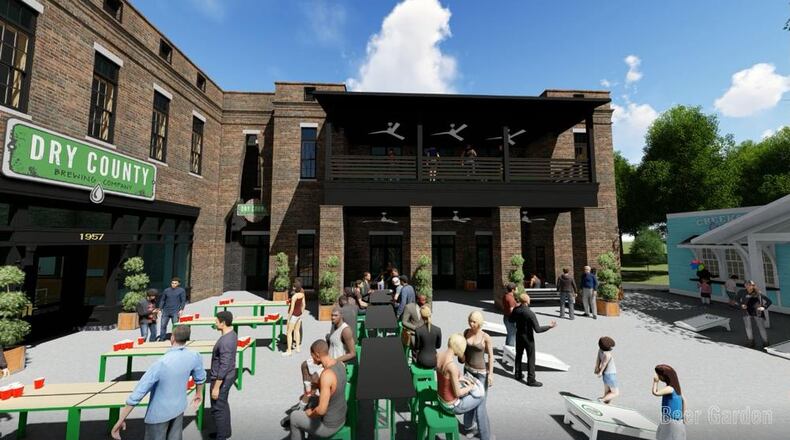Since the drubbing that Republicans suffered in metro Atlanta's northern suburbs last month, something that Fran Millar said had nagged at me.
A state senator from Dunwoody, Millar was one of several GOP state lawmakers who saw their seats washed away by a blue wave on Election Day.
Twenty-four hours after his loss, Millar was quick to acknowledge the backlash to President Donald Trump as the primary driving force. And he credited his Democratic opponent, Sally Harrell, with running an effective campaign.
But Millar identified yet another factor in his defeat: The Democratic ability to draw a new force into the suburban politics of the northern arc — the power of apartment complex voters, and condo owners, too. I called him last week to see if he still felt the same. He did.
“Ten years ago, Dunwoody was a single-family bedroom community — that was the force behind the creation of the city of Dunwoody,” Millar said. “Today, more than half of Dunwoody residents no longer live in single-family dwellings. That’s not where these people are going. They’re going to be in high rises. They’re going to be above store fronts”
One problem with wave elections is that they tend to obscure other, subtle but important shifts in voting patterns. “What [Democrats] did in the apartments that was very effective,” admitted Sandy Springs Mayor Rusty Paul, a Republican. “They identified voters in the apartments, and then ran the best ground game that I’ve ever seen.”
But what impressed Paul more last Wednesday, the day after Republicans emerged victorious in two statewide runoffs, was that even the richest areas of Sandy Springs, neighborhoods with homes worth $3 million and more, stuck with the Democratic candidates.
“In these affluent areas, it actually got bluer,” Paul said. “That was the surprise for me. I thought it was a mobilization issue, and to a large degree it was — at a certain level. But you’ve had a philosophical shift among affluent, educated voters in the state of Georgia that I don’t think anybody anticipated.”
Yet a decline in the political clout of homeowners in Atlanta’s northern suburbs would be its own earthquake.
The targeting of apartment clusters is a casual feature of urban electioneering, and within the city of Atlanta, it is nearly an art form. But OTP, in the arch that stretches from Cobb County through to Gwinnett County, R-100 zoning – single homes of a certain square footage, sitting on a lot of a certain size — has served as the foundation of local politics for decades.
Those houses are filled with voters who remain in place year after year, voting the same way today as they did 10 years ago. Apartment dwellers are a younger and more diverse lot. Their needs and concerns are different — when it comes to schools, transportation, recreation and property taxes.
And there are more and more of them. A Fannie Mae study published this fall reported that nearly 44,000 apartment units have come online in metro Atlanta since 2012. Another 17,000 are expected to be completed by 2019.
Curiously, when I approached the campaigns of Stacey Abrams and Lucy McBath, which drove much of the Democratic success in Cobb, Gwinnett and north Fulton on Nov. 6, I was told that apartment complexes weren’t a specific target of either campaign, but a byproduct of granular voter-contact operations based on social media, texting and the Internet.
Any search for younger, diverse voters, or those who don’t normally participate in mid-year elections, will naturally lead campaigns to blocks of apartments along metro Atlanta’s busiest thoroughfares.
My Abrams contact said their campaign was well-versed enough in apartment campaigning to know that, with many complexes gated, an inside contact was essential for canvassing. A McBath contact noted that the techniques often used to contact the owners of single-family homes — he specifically cited direct mail — don’t work with apartment dwellers.
They don’t check their mailboxes that often, he said – because they pay their bills online.
One downside raised by both: Apartment dwellers move. A lot. Which can raise boatloads of voter registration issues.
Finally, I was able to contact one pioneering foot soldier. Josh McLaurin is a Sandy Springs attorney who in January will be sworn in as a state House member. A Democrat, McLaurin will replace the retiring Wendell Willard, a Republican.
“I probably visited at least 2,000 doors in Sandy Springs apartment complexes that weren’t actually on a campaign ‘knock’ list. You never really know who you’re going to talk to,” McLaurin said.
Democrat Jon Ossoff’s well-funded but unsuccessful 2017 campaign for the Sixth District congressional seat repeatedly canvassed single family homes, McLaurin said. “That wasn’t necessarily true in these apartment complexes.”
McLaurin credited Abrams and her ever-present TV campaign for giving him entrée in many complexes. “I’ll be honest — at a lot of doors, if I could mention that I was supporting Stacey Abrams and was on her team, that was a successful way to facilitate a conversation most of the time. I fully adopted her brand,” McLaurin said.
The attorney says he now feels obliged to give voice to a population that, in his part of metro Atlanta, has been politically invisible. “Not only do I represent their views and concerns, I represent the fact that they’re actually there,” McLaurin said. “Even that is a stunning realization for a lot of observers.”
But because we gave the first word to Fran Millar, the Dunwoody Republican, it’s fitting to give him the last word, too. Millar thinks his GOP colleagues need to engage in a little evangelism.
“I think Republicans are going to have to develop an apartment ministry,” he counseled. “You better broaden your mission. The Republican party in the metro area can no longer be a single-family homeowner institution.”
About the Author
The Latest
Featured




